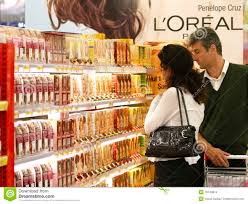Why L’Oreal Stock Is Rising After the Death of Billionaire Company Heiress Liliane Bettencourt

The death of the French matriarch of L’Oreal‘s founding family stirred speculation about the future of the world’s largest cosmetics firm and its relationship with shareholder Nestle nsrgy .
Billionaire Liliane Bettencourt, listed by Forbes as the world’s richest woman, died at the age of 94, her daughter said late on Thursday.
Bettencourt’s family owns 33% of L’Oreal. Her daughter Françoise Bettencourt-Meyers, who sits on L’Oreal‘s board along with her own son, said that the family remained committed to L’Oreal and its management team.
However, the death could ultimately trigger changes in the ownership structure of the company in which Nestle has been a major investor for over 40 years and now has a stake of around 23%.
“Speculation will now inevitably be re-ignited around Nestle’s intentions towards its L’Oreal stake,” analysts at Jefferies said.
“This holds out the prospect of L’Oreal either buying in the stake, or perhaps even Nestle buying L’Oreal outright.”
Hopes of change sent L’Oreal‘s shares up 4% in early trading, making it the best performer on France’s benchmark CAC-40 index.
Nestle had agreed with the founding family that the two parties could not increase their stakes during Liliane Bettencourt’s lifetime and for at least six months after her death.
“We express our most sincere condolences and deepest sympathy to Mrs. Bettencourt’s family and to all at L’Oréal at this difficult moment,” a Nestle spokeswoman said on Friday.
“This is not the right time to make any further comment,” she added.
Activist Pressure
Questions over Nestle’s investment in L’Oreal lrlcy , worth 23 billion euros ($ 27.6 billion) before Friday’s rise, have intensified after activist shareholder Third Point disclosed a stake in Nestle in June and urged the Swiss group to sell down the stake, which represents more than 10 percent of its own market value.
Third Point said it could be divested in a tax-efficient way through an exchange offer whereby Nestle would give shareholders L’Oreal shares for their Nestle shares.
That would enhance Nestle’s return on equity and increase its share price in the long run, Third Point said, as earnings improve over a reduced share count.
Third Point declined to comment on Friday.
L’Oreal is seen by analysts as being a willing and able buyer of Nestle’s stake, and could use its 9% holding in Sanofi snynf , worth about 9.5 billion euros, to fund it. Sanofi shares were up 1%.
Investec analysts last month estimated that L’Oreal could boost its earnings per share by 10% if it bought back the stake.
In the past, under previous Nestle managers, there had been speculation that Nestle might try to acquire L’Oreal outright.
That view has become much less common after Nestle reduced its stake in 2014 and loosened the companies’ ties by taking over the Galderma dermatology joint venture they shared.
“We think a disposal in the medium/long-term is more likely than a takeover, given the diverging strategic paths of the two companies over the last decade,” said analysts at UBS.
Nestle, maker of KitKat bars and Perrier water, has been pivoting toward nutrition and health, while L’Oreal is more focused on beauty products.
Nestle’s new chief executive Mark Schneider, who began his role at the turn of the year, will lay out his strategy next week at an investor meeting in London.

